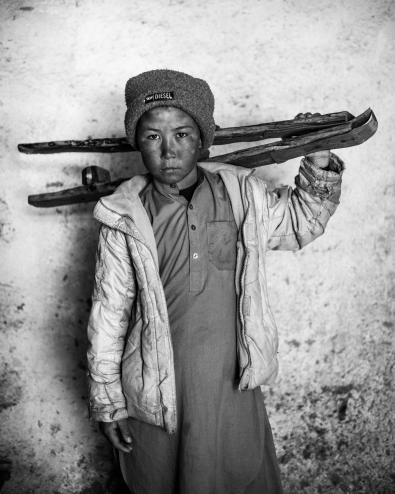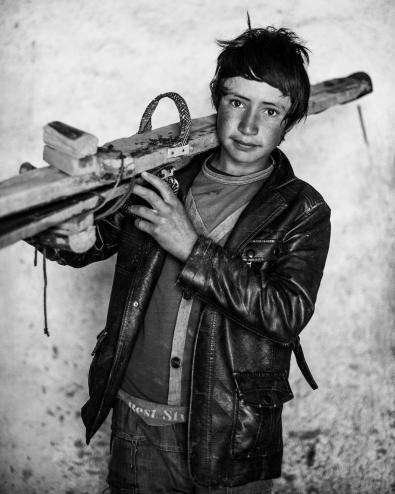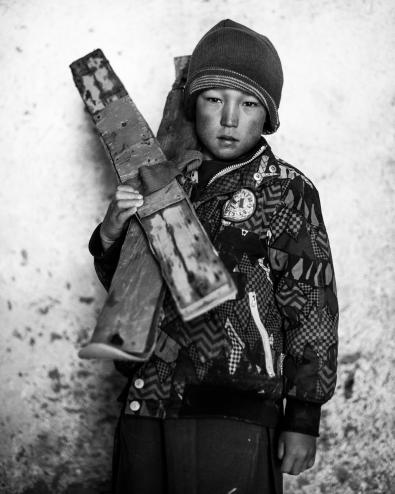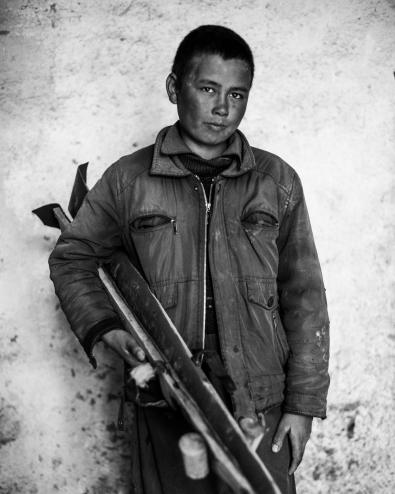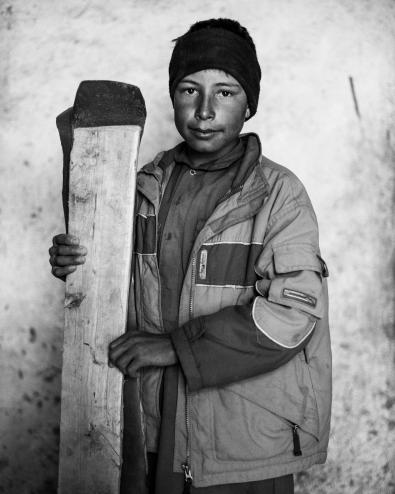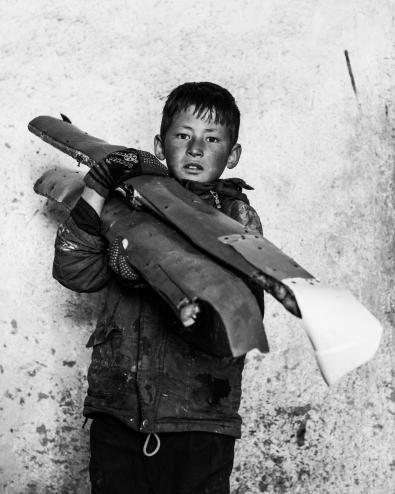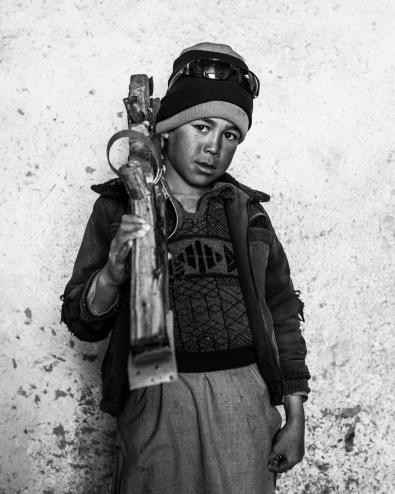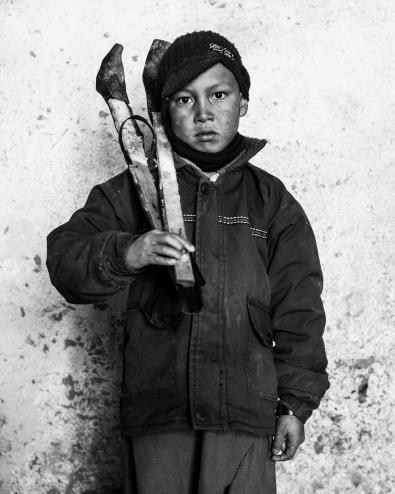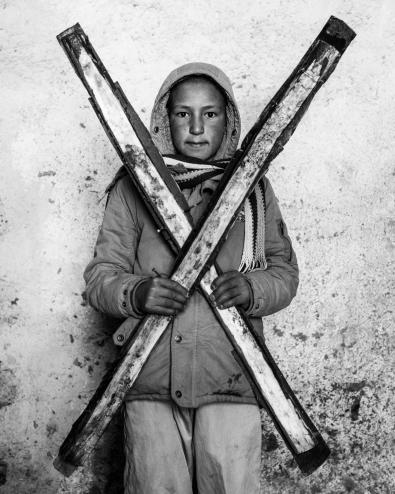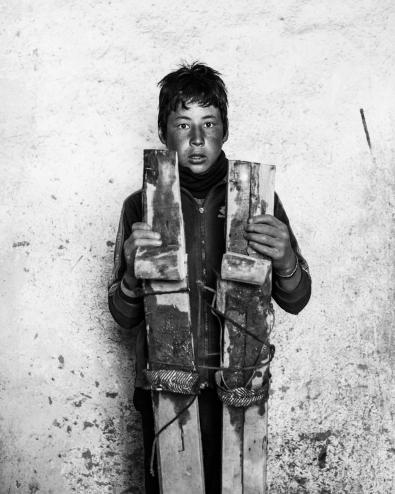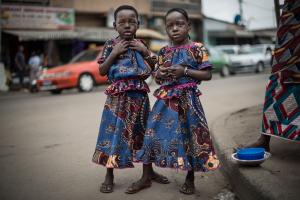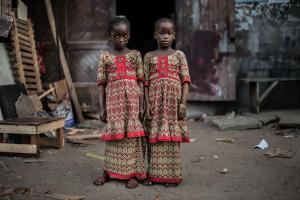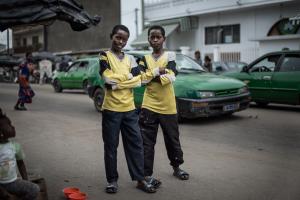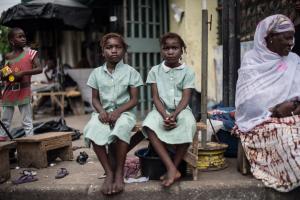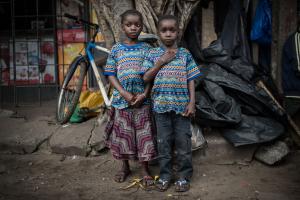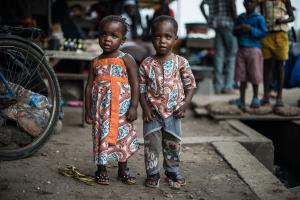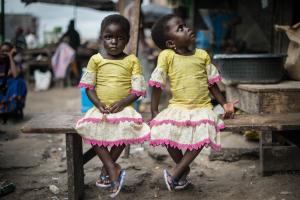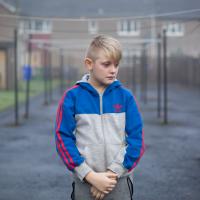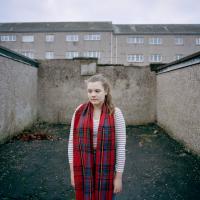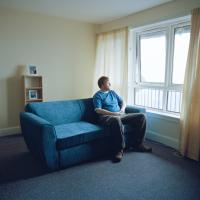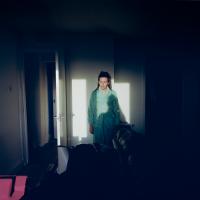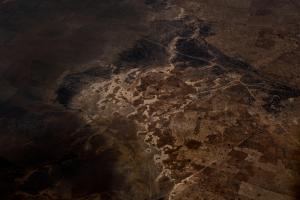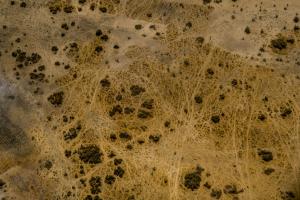"High Water" by Andrew Quilty
Au Bala (means High Water in Dari language) is located in the Fuladi Valley, near Bamiyan, Afghanistan, March 2017. I'd seen photos of the boys and their homemade skis; the rough-hewn planks matching the mottled skin on the faces of their makers.
They were from Bamiyan in Afghanistan's central highlands, famous for the giant Buddhas carved into an escarpment 1,500 years ago and destroyed by the Taliban just months before the United States led a military intervention to overthrow their regime in 2001.
The boys seemed only to appearâ for cameras at least”when the Afghan Ski Challenge”an annual cross-country race that attracts skiers from across the province and overseas, and which ran for the seventh year this March was held within skiing distance of their homes.
While many Afghans who'd compete had accumulated mismatched ski pants and jackets, boots and proper skis from donors, these boys wore mostly traditional Afghan clothes with regular shoes or plastic sandals.
I wanted to find the boys and photograph them with their wooden skis.
The first call I made before flying from the Afghan capital, Kabul, to Bamiyan, was to the manager of a hotel in the provincial capital. Abdullah proved not only to be an affable host, but an enthusiastic colleague, as well. Within a couple of hours of my arrival we'd met up with Alishah Farhang, a handsome, fit-looking 27-year-old in mirrored sunglasses on a nearby piste.
Farhang, it turned out, was one of Afghanistan's top two skiers. He hopes to represent his country in the 2018 winter Olympics in the giant slalom. It would be a first for an Afghan. He suggested we venture west, beyond his village, as far as the road would take us into the remote Fuladi Valley.
Bamiyan is the safest province in Afghanistan, so, unlike most other parts of the country, where road movements especially for foreigners are done with caution, planning, often heavily armed escorts, and always white knuckles the drive, through villages of mud houses and silver poplars, was unusually pleasant.
Abdullah urged me to be patient as I eyed each passing village for young skiers. After an hour on the muddy road we finally came to a dead-end and the village of Au Bala, High Water, the farthest up the river that feeds the valley's potato crops.
As Abdullah parked, I spotted a silhouette making its way across a snow-covered paddock, straight-legged, scissoring along just like a cross-country skier. As the silhouette moved out of the direct sun, I made out a young boy, maybe ten, shuffling along on what looked like shortened fence palings.
We were in the right place.
It was 2009 when Au Bala first encountered skiing. A man and woman working for an international development organisation had travelled there in a quest to map the mountains of Bamiyan as part of an effort to attract tourists to the province.
The pair gave a demonstration on skis they'd brought along, and ever since, based on the shared memory of that day, and using lengths of timber with plastic strips nailed to the bottom; with nylon webbing, twine or even protruding nails for bindings, the boys of Au Bala have continued to build their own.
As we walked into the village we quickly collected a trail of young boys who pointed us toward the village's only mosque, a gathering place even outside prayer times. We explained ourselves to a handful of elders who were soaking up the winter sun outside.
Within minutes Abdullah and I had been ushered inside a small anteroom where worshippers ordinarily leave their shoes during prayer. This, someone had decided, would be our studio.
The room quickly filled with young boys, a couple carrying clunky skis and wooden poles. At the demand of one older boy another dashed outside into a maze of alleyways in search of more skiers.
Minutes later, five boys, all fumbling with homemade skis, were lined up along one side of the room.
Rarely does it all come together so easily in Afghanistan.
One by one I had each stand with their backs to the white-washed mud wall across the room from the low doorway. Sunlight poured through and made a trapezoid of light on the floor - it bounced up and lit the shadows beneath the boy's eyes.
Afghans are wonderful portrait subjects; staring down the lens sternly, expressionlessly, but with pride. I spent less than two minutes with each: Baz Mohammad, Chirgh Ali, Bismillah, Ghodratullah and Omid. None knew exactly how old they were. And there were more, the boys said, but they were at school.
The following day we drove back to Au Bala at the same time. Eight more boys were waiting for us outside the mosque. Their skis were side-by-side, leaning against the wall, and the winter sun was melting the snow they'd collected on their last run.

